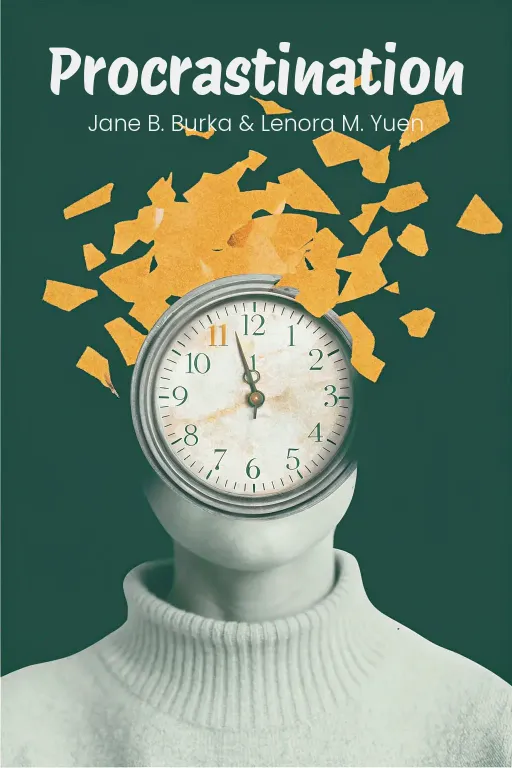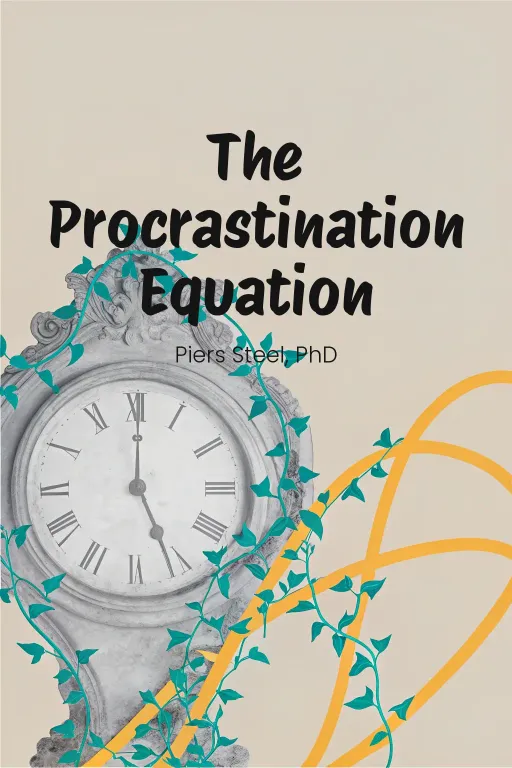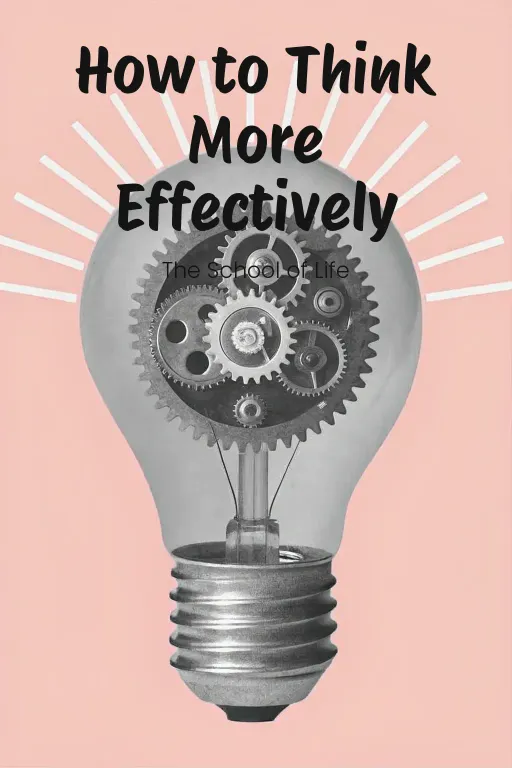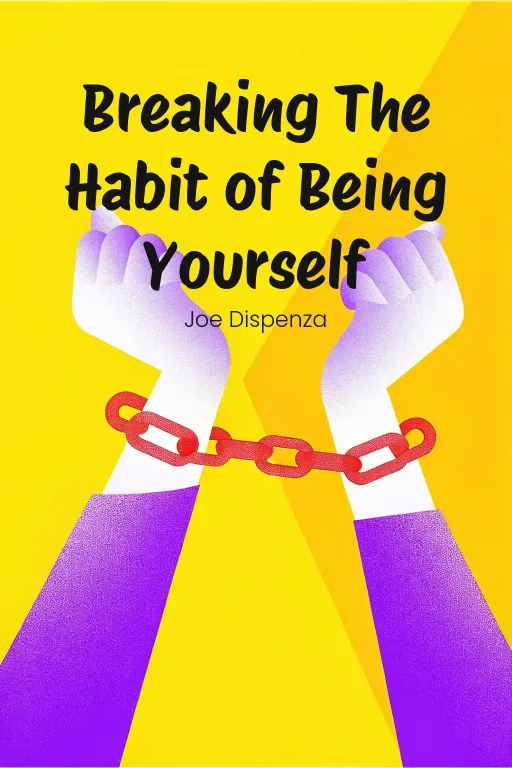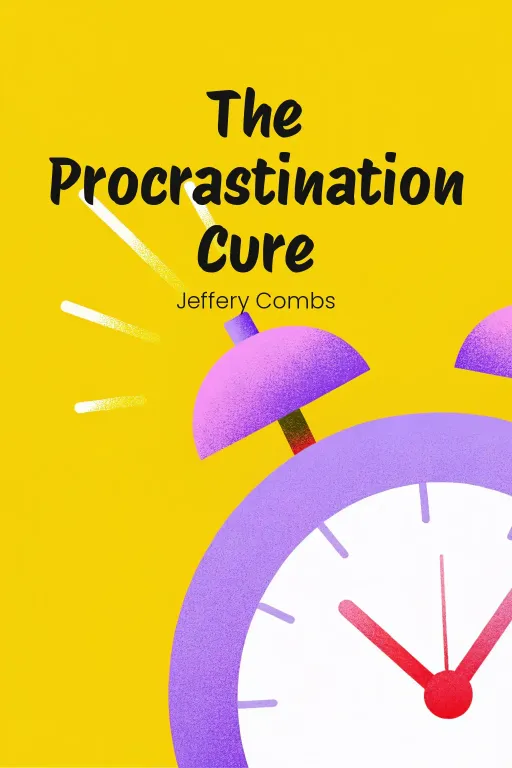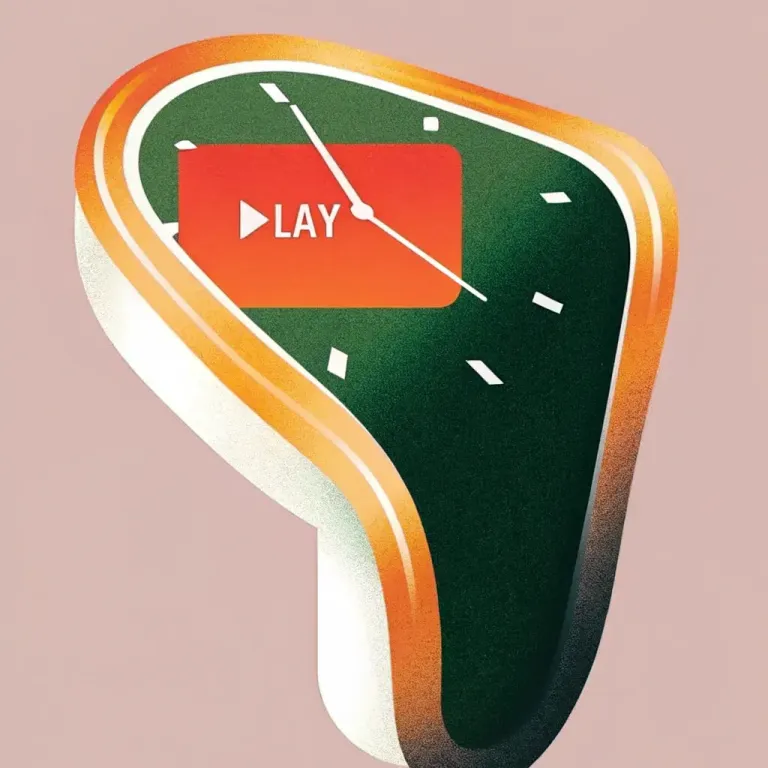
Cure Procrastination: Master Your "Now"!
Podcast by The Mindful Minute with Autumn and Rachel
7 Steps to Stop Putting Life Off
Introduction
Part 1
Autumn: Hey everyone, welcome back! Ever wonder why we procrastinate so much? Is it just laziness, or maybe fear of failure, or is there something more to it? Today, we're diving deep into procrastination, something we all struggle with. Rachel: Exactly! I mean, who hasn't put off something important until the last minute and then totally panicked? Procrastination isn't just a bad habit, it's practically a universal experience. Is there a reason for doing that? Autumn: Well, that's where Jeffery Combs' book, The Procrastination Cure, comes in. It doesn't just give you basic advice, like "use a planner". It “really” gets into the psychology behind procrastination, looking at how our emotions and even our childhood experiences can influence our tendency to put things off. And the best part? Combs doesn't just point out the problem. He gives you real strategies, like the seven habits of "recovering procrastinators," to help you break the cycle and get things done. Rachel: So, that’s what we are going to discuss today. First up, we're looking at the six different types of procrastinators. I'm betting we'll all recognize ourselves in at least one of them. Then, we'll break down Combs' practical habits for overcoming procrastination. These aren't just about trying harder, but about working smarter, right? And finally, we’ll talk about these tools can actually change your entire approach to life and achieving your goals. Autumn: Absolutely! Think of it as peeling back the layers. First, understand what's holding you back. Then, learn concrete ways to overcome it. And finally, discover the freedom to be more productive and achieve what you “really” want. So much to talk about, let's get started!
Types of Procrastinators
Part 2
Autumn: So, picking up where we left off, Rachel—you were asking why we procrastinate even when we know it's bad for us. Well, Jeffery Combs argues that procrastination itself isn't the core issue. It's more like a symptom, a way we cope with deeper emotional or psychological stuff. That's why he's identified six different types of procrastinators. It's all about figuring out the why behind your procrastination, so you can tackle the root cause, you know? Rachel: Right, because just telling someone to stop procrastinating is about as useful as telling someone with vertigo to just look down, problem solved. So, six types, huh? Lay it on me, what's this taxonomy of procrastination look like? Autumn: Okay, let's start with one of the most common, and honestly, most painful: The Neurotic Perfectionist. These are the people who feel like everything has to be absolutely perfect, or there's no point in doing it at all. They set these incredibly high standards for themselves, and they end up either avoiding the task entirely or getting so caught up in it that they burn out. I mean, how often do you hear someone say, "If I can't do it perfectly, why even bother?" It's a classic. Rachel: Yeah, I know that type. But, if it's perfectionism that's driving them, wouldn’t they be obsessively starting tasks, rather than obsessively avoiding them? Seems counterintuitive. Autumn: It is a bit of a paradox, right? Combs explains that it's actually the fear of not meeting those impossible standards that makes them procrastinate. For them, starting something means risking failure. So, they put it off until the last minute and rely on the adrenaline to get through it. And the result? Well, they might pull it off, but they are left feeling just completely drained, guilty, and probably hypercritical of the end result. Rachel: So, they are basically stuck in this chaos-then-shame cycle? And I'm guessing the bigger the task, the worse it gets, right? Like, if they're writing a novel, they will edit the same sentence a hundred times, while the rest of the draft just sits there untouched for years. Autumn: Exactly. And Combs suggests that the key is to embrace "progress over perfection." Like, set time limits on tasks. Say, 30 minutes to draft a report instead of trying to fine-tune it endlessly. It’s about shifting that mindset from “It has to be absolutely flawless” to “It just has to exist.” Baby steps, right? Rachel: Alright, so step one, ditch the perfectionist cape. What's next? Autumn: That brings us to The Big-Deal Chaser. These are the dreamers. They just thrive on these grandiose ideas, but when it comes to the actual follow-through, they struggle. They love planning the launch of the next big thing, like starting a business or writing a bestseller, but they get completely overwhelmed by the less glamorous, nitty-gritty details that are involved. Rachel: Oh, I know these people. They're the ones who are always talking about their "million-dollar idea," but three months later, they're still sketching logos instead of, you know, actually building the thing. Autumn: Exactly. Combs talks about one entrepreneur who had this really groundbreaking product idea, but they just never made it past the brainstorming stage. They would get this emotional high just from envisioning their success, talking about it as if it were already a reality, but they avoided the hard work, like building prototypes or meeting with suppliers. And when reality didn't match the fantasy, their confidence just spiraled, and the project just ended up half-finished. Rachel: This sounds less like procrastination and more like a motivational sugar crash. What does Combs suggest they do differently? Autumn: He's really big on grounding those ambitions with small, actionable goals. So, instead of saying, "I'm going to write a best-selling book," you break it down into concrete steps. Like, write 500 words a day. It's about feeding that excitement with tangible wins instead of those empty thrills. Rachel: Got it, dream big, but start small. Okay, who's next on the procrastinator roster? Autumn: The Chronic Worrier. This type is just stuck in analysis paralysis. They're so afraid of potential failure, or even just minor missteps, that they overthink everything and just stall indefinitely. It's that classic what-if loop. "What if I mess up? What if it's not good enough? What if people judge me?" Rachel: So, they're perpetually preparing to prepare, but never actually doing anything. Do they have a trademark case study? Autumn: Combs talks about someone named John, who was constantly reading books, going to networking events, gathering information endlessly. But he never really took the next step, like actually pitching a product or following up on a lead. His fear was rooted in some childhood rejection, which amplified his need for certainty. And the tragic part is, his avoidance just deepened his fears and led to mounting debt and emotional stress over time. Rachel: So he was essentially spinning his wheels, thinking he needed the perfect moment to act, which of course, never comes. So, what's the fix here? Autumn: For the chronic worriers, the priority is to focus on action, not outcomes. Combs recommends committing to small, imperfect tasks every day. Like sending one email or making one phone call. It's about breaking that mental loop of "What if?" and replacing it with the much simpler question: "What's one thing I can do right now?" Rachel: And I bet mindfulness plays a role here too, right? Getting them out of their heads and back into the present moment? Autumn: Absolutely. Relaxation techniques, deep breathing, or even just stepping away from their to-do list for a moment, can really help them regain some clarity. The goal is to ease the pressure they feel to get it 100% right before they even begin. Rachel: All right, so we have perfectionists, dream chasers, and overthinkers. Does this next type procrastinate for totally different reasons, or are we still seeing some overlap? Autumn: Oh, no, the next one is completely its own beast. The Rebellious Procrastinator. These people don't delay tasks because they're afraid of failure or overwhelmed by ambition. It's because they actively resent being told what to do. Rachel: Ah, the authority resisters. You know, this one hits a little too close to home. Like when I procrastinate on filling out forms purely because someone left them on my desk with a note saying, "Urgent." Autumn: That's classic rebellion! Combs describes these individuals as passive-aggressive in their procrastination. They make promises to complete tasks, but they never intend to follow through, fueled by a need to assert control or independence. Rachel: Okay, but let's get “real” here. The suggestion to "develop emotional discipline" sounds easier said than done. What's the actual playbook for these rebels to stop shooting themselves in the foot? Autumn: A big step is reframing tasks, so they don't feel like obligations. For instance, instead of thinking, "I have to finish this report because my boss said so," reframe it as, "Completing this report could help me stand out and earn rewards that I value." It's about shifting from reactive to proactive thinking.
The Seven Habits of Recovering Procrastinators
Part 3
Autumn: So, all of this naturally leads us to how to actually tackle procrastination, right? Combs lays out his “Seven Habits of Recovering Procrastinators.” He’s really looking at it from all angles. These aren't just theories, they are practical tools to help you break the procrastination cycle, so you can use them daily. Shall we dive in? We'll introduce each one, explain what it does, and see how it fits into real life. Rachel: Yep, let's hear it. What's the first habit then? Autumn: Alright, habit number one: “Manage Yourself in Time.” It's about changing how we relate to time. Instead of feeling swamped by these massive tasks, we can break them down into smaller, more manageable bits. Rachel: Okay, hold on a sec. “Manage Yourself in Time”... sounds great, very poetic, but what does that actually mean? How do you do that, practically speaking? Autumn: Absolutely. One great way is what Combs calls “The Power of 15 Minutes.” Imagine your workspace is a disaster zone—papers everywhere, coffee cups forming some kind of caffeine museum. Tackling the whole thing seems impossible, and that’s why you avoid it. Instead, you focus on just 15 minutes. Start with clearing one small corner of your desk. You'll find you start to build momentum before you know it, and suddenly, it doesn’t feel so overwhelming anymore. Rachel: So... the idea is to kind of trick your brain into thinking it's not a huge undertaking, by giving it small, bite-sized chunks of time, right? I guess it’s like telling yourself, “I’m not running a marathon, just going for a quick jog.” Autumn: Exactly. And Combs also suggests things like time blocking—scheduling specific times to really focus without interruptions—and identifying a few key priorities each day. It's about being deliberate with your time, instead of letting it just slip away through distractions and procrastination. Rachel: Now, speaking of distractions, it almost sounds like all procrastinators need is a planner and some 15-minute bursts of discipline. But what about the emotional side of things? Aren't there usually deeper reasons beyond just a messy desk? Like some kind of emotional barrier? Autumn: That’s where the affirmations he talks about come in. Affirming thoughts, like, “I control how I use my time,” can be surprisingly effective in helping procrastinators feel more empowered, instead of overwhelmed. It kind of flips their thinking from avoidance to accountability. Rachel: Got it. Time mastery through, you know, tricks, planning, and a little pep talk or two. Okay - what's habit number two? Autumn: Habit two is “Set Small Goals; Take Small Steps.” We kind of touched on that earlier when we were talking about perfectionists and those chasing after some “big deal.” The focus here is really on reducing that emotional feeling of being overwhelmed by breaking down the huge goals into these tiny, achievable actions. Rachel: So, basically, it's a “don’t bite off more than you can chew” kind of approach? And – let me guess – it doesn’t involve achieving enlightenment overnight, does it? Autumn: No overnight enlightenment here! It’s all about building momentum. Take the direct sales case Combs mentions—this woman wanted to recruit 30 new members in a month. Way too big. She just froze. When she focused on enrolling two members a week, she not only made progress but also felt good about actually achieving those mini wins. Rachel: Right, because it’s hard to celebrate when you’re constantly falling short of your own impossible expectations. Setting smaller goals sounds like securing mini-victories, instead of just waiting for some massive, “end-all, be-all” achievement. What kind of tools does he suggest for this? Autumn: First, micro-steps. Instead of saying, “I'm gonna get in shape,” a small step would be, “I'll walk for 10 minutes today.” Then celebrating those victories—giving yourself rewards for completing those small milestones. It really reinforces the productive behaviors. And ditching the comparisons. Your journey is yours… it’s not a race against someone else’s timeline. Rachel: Okay, let me guess—habit three builds on all of this, right? Autumn: You got it. Habit three is “Perform the Task Itself.” It's about fighting procrastination by doing something, anything really, no matter how small it is, or how imperfect it might be. Combs argues that procrastination thrives on emotional resistance, so the fastest way to kill it is to just get started. Momentum overcomes the desire to avoid it. Rachel: Alright, but how small are we talking? Because I can just imagine someone saying like, “Fine, I started! Does opening the document count?” Autumn: Actually, funny enough, yes! Opening the document, writing two sentences, even just getting the tools you need ready—those all count, because they actually break that emotional barrier. Over time those little actions can snowball into actually significant progress. One strategy he talks about is deconstructing the tasks—make a list of the high-priority things, then zoom in on one area of the problem, and give yourself hard deadlines. Rachel: So it goes from, “I’ll clean the house... eventually,” to “Today, I'm organizing the closet.” Same problem, but just scaled down to something… achievable. Makes sense. What about habit four? Autumn: Habit four is a game-changer. And that’s, “Write Things Down.” Whether it's tasks, brainstorming, affirmations, writing brings clarity, accountability, and structure to those who are paralyzed by chaos. Rachel: Okay, I gotta admit, I've tried that whole “mental to-do list” thing, and… spoiler alert, it really doesn't work. Everything jumbles together, and I feel like I forget half my priorities halfway through the day. Writing it down is underrated, for sure. Autumn: Exactly, because it frees up your mind. Combs says that having a nightly routine where you're writing down the tasks for the next day can be huge. It's about getting all the chaos out of your head and onto paper, where it doesn't spiral out of control. He talks about someone who always missed meetings until they started using a planner. That little change let them refocus and actually start their mornings knowing what they needed to do. Rachel: Sounds simple, but it’s kind of powerful. And let me guess we have sub-tools for this too, right? Autumn: Yep - things like end-of-day reflections, short and long-term journaling, and pairing those tasks with affirmations for clarity. Writing creates this roadmap; it’s the first move toward action. Which takes us neatly to habit five, but we’ll come back to that in a beat.
Overcoming Procrastination in Key Life Areas
Part 4
Autumn: So, these habits “really” lay the groundwork for tackling specific life challenges. Now that we’ve gone in-depth on the habits themselves, let’s look at how they play out in the real world. Jeffery Combs dedicates a big chunk of The Procrastination Cure to dealing with procrastination in areas like addiction, clutter, health, relationships, and, uh, spirituality. Because, honestly, procrastination isn’t just about work, is it? It bleeds into everything. Rachel: Right, so we’ve moved beyond just putting off a report to seeing how our feelings, our surroundings, even our relationships are all tied up in procrastination. I'm guessing this is the part where it starts to hit home for people, maybe even make them a little squirmy. Autumn: Exactly! Combs basically says that procrastination often stems from unresolved emotions or internal conflicts. That's why one-size-fits-all won't work, why each area needs specific strategies. We’re talking emotional eating, decluttering, or getting clarity in relationships. Shall we jump into these themes, starting with something a lot of people struggle with: addiction and emotional triggers? Rachel: Ah, addiction. Not just the big stuff, like smoking or drinking, but the sneakier habits, like demolishing a bag of chips while promising it's the "last one," or compulsively refreshing social media when you should be working. Are these addictions stemming from emotional reason? Autumn: Yes, indeed! Combs points out how procrastination and addictive behaviors often go hand-in-hand. We use avoidance to shield ourselves from uncomfortable feelings like guilt, loneliness, or even shame. Think about emotional eating. Someone might promise, "Tomorrow, I'll eat healthily," then binge when they feel stressed or inadequate. It’s not just about willpower. It’s actually a coping strategy. Rachel: So, they're not just putting off healthy habits, they're trying to fill an emotional hole, right? So, what does Combs suggest to break that pattern? Autumn: Self-awareness is key. Start journaling to pinpoint those triggers. Note when, where, and why you tend to overeat. For example, does it happen after a tough meeting? Or when you’re scrolling through Instagram and comparing yourself to others? Once you spot those patterns, swap the habit with small, healing actions. Commit to just one balanced meal a day instead of overhauling your whole diet at once. Rachel: So, instead of "I'm stressed, I'll eat," you're choosing "I'm stressed, I'll take a walk" or "I'll do five minutes of meditation." It's a conscious pause, yeah? Autumn: Exactly. Creating a break in that avoidance loop. And those micro-steps – a single healthy meal, journaling before bed – they provide emotional clarity and keep things manageable. Let's move on to clutter and organization, another tricky area. Rachel: Ah, the classic "I'll clean tomorrow" lie that we all tell ourselves. And by "clean," I mean watching laundry piles slowly turn into some new life form. So, what's the psychological connection here? Autumn: Often, clutter mirrors our internal emotional state. Mental fog or unresolved stress manifests into physical mess. And here’s the kicker; clutter creates more stress. Combs tells a story of a homeowner whose messy office got so bad they couldn’t do basic work tasks and were paralyzed by deadlines. It’s a vicious cycle, the chaos feeds the procrastination, and the procrastination causes more chaos. Rachel: Okay, but tackling that huge mess can feel paralyzing. It's easy to think, "If I can't do it all today, I might as well do nothing." So, what's the solution? Autumn: Combs' "Power of 15 Minutes," which we talked about earlier. Break the task down into small sections – one desk drawer, one corner of the room – and focus for 15 minutes. Even if you stop there, you’ve made progress, and you’ll often feel motivated to keep going. Rachel: It's like the snowball effect of organizing. Someone finishes one drawer and thinks, "That wasn't so bad, let's do another." And Combs says these little wins build mental clarity, right? Autumn: Definitely. Physical organization mirrors mental clarity. Clear a space, remove excuses and reduce distractions, making it easier to stay productive rather than feeling swamped. Now, let's talk about health, which is closely linked to procrastination. Rachel: Oh boy, I sense some uncomfortable truth coming. Are we talking about "I'll join the gym next week" or "I'll eat healthy when things calm down"? Autumn: Exactly. Combs believes health is the foundation for well-being. Procrastination in this area often hides deeper emotional baggage. He shares a story of someone carrying extra weight, not just physically but emotionally – years of stress, guilt, and self-doubt that stops them from taking action. The thought of fixing everything becomes so overwhelming, they freeze. Rachel: So, their weight wasn’t just pounds; they were carrying emotional weight too. The solution wasn't just "Hit the gym harder," I guess? Autumn: Nope. The first step is emotional introspection: Journaling about what the weight represents. Is it stress from a toxic relationship? Or fear of vulnerability? And then do micro-actions. Instead of changing everything overnight, commit to small, feasible changes. Maybe swap one soda a day for water or take a ten-minute walk. Rachel: Okay, shrink the change, tackle the emotions – a combo plan. Makes sense. What about relationships? Drama-seekers often procrastinate by focusing on chaos instead of connection, right? Autumn: Relationships often show procrastination in surprising ways. Combs notes that people who seek drama tend to blow minor conflicts out of proportion – like arguing about dirty dishes – to avoid emotional intimacy. It’s a way to distract from vulnerabilities or insecurities and keep themselves from truly engaging with others. Rachel: Self-sabotage, right? Instead of fixing real issues, they’re stirring the pot and keeping things surface-level. Is there a way out of it? Autumn: Mindfulness is vital. When conflicts arise, ask yourself, “Am I adding unnecessary pressure? What’s the root feeling – fear, anger, or resentment?” After pinpointing the emotion, you can shift your response, choosing calm communication over chaotic reactions. Setting boundaries is also crucial, especially for caregivers who overextend themselves. Reclaiming personal time helps create a healthier balance. Rachel: Drama down, boundaries up. Noted. That leaves spirituality, right? How does procrastination creep into personal growth? Autumn: Spirituality centers on intentionality and mindfulness, both antidotes to procrastination. Combs gives an example of someone overwhelmed by financial stress and family needs, turning to endless social media scrolling. That avoidance disconnects them from their purpose and peace. Rachel: And the solution isn’t just putting down the phone but building mindful practices that realign their focus, right? Autumn: Correct. Rituals like daily meditation or gratitude journaling bring a person back to the present moment. Spiritual introspection also helps reframe procrastination, turning it from an emotional roadblock into part of a bigger growth journey. It’s about focusing less on what you haven’t done and more on what matters most. Rachel: That's a powerful anchor. So, whether it's emotional eating, cleaning, exercising, building relationships, or finding spiritual clarity, it’s all connected to addressing procrastination at its root. Autumn: Absolutely! And it’s amazing how small, conscious actions across these areas ripple outward, transforming not just how we avoid tasks, but how we face life in general.
Conclusion
Part 5
Autumn: Okay, time to bring this home. Today we dove deep into procrastination, and it's definitely more complex than just being lazy. We talked about the six types, like the Neurotic Perfectionist and the Rebellious Procrastinator. The big takeaway for me was realizing that procrastination isn't just about time management; it's really about our emotions, our fears, and even habits we've picked up. Rachel: That's right. And that leads to the seven habits we discussed, right? Managing your time in a new way, breaking those huge goals down into tiny, manageable steps, and really focusing on action, no matter how small. It's not about suddenly being perfect; it's about being consistent and knowing exactly what you need to do. I think that these habits aren’t just for work, they can really overflow into different areas of your life – your health, getting rid of things that clutter your space, your relationships, and even your inner peace. Autumn: Exactly! As Jeffery Combs says, procrastination is usually about more than just the thing we're avoiding. It has to do with how we react to feeling uncomfortable, how we deal with our feelings, and how we chase after our goals. So, if you take only one thing away from this discussion, it's this: knowing yourself is the first step. When you understand why you procrastinate, you can start to overcome it. Rachel: Right, so once you get that figured out, what's next? Just making one small, deliberate move. Whether it’s writing down what you need to do tomorrow, spending just 15 minutes decluttering a space, or talking about a single emotional trigger. Big changes aren't about huge leaps; they start with that very first, targeted action. Autumn: So, let's wrap up with this question: What's one thing you've been putting off that you can take a small step toward today? Just start there. Seriously, it could be the first move toward changing how you handle not just tasks, but basically your entire life.


